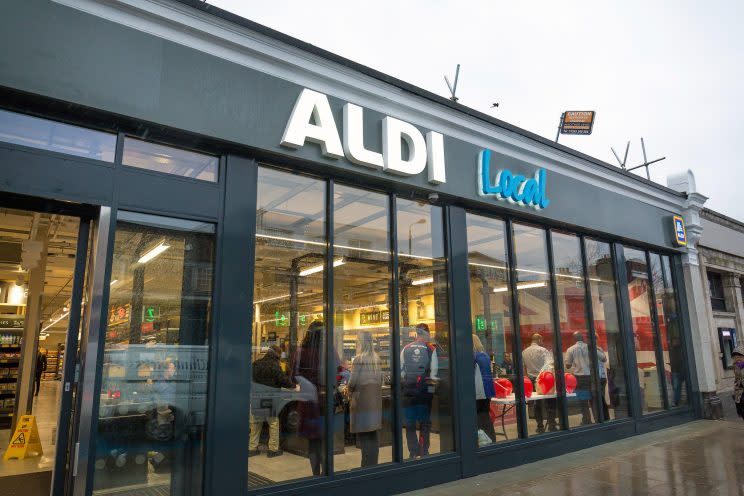Now Aldi is trying to conquer the convenience store market

The launch of the first ‘Aldi Local’ store in south-west London this week has sparked inevitable speculation about the supermarket giant’s desire to conquer the convenience store market.
The discount supermarket said its new brand could be rolled out to at least four other existing stores in Archway, Kilburn, Kingston and Tooting, which are also smaller than its average branches, if the trial is successful.
The first store in Balham measures 6,000 sq ft, reported to be half the size of the average Aldi store, and does not have a car park.
Aldi said the branch has 300 fewer products available than its larger stores, with the German firm cutting many larger pack sizes and its Special Buys. The Balham store has 1,500 products on sale, compared to 1,800 in an ordinary Aldi supermarket.
The growth of the convenience store
“This is not a move into convenience retailing,” an Aldi spokeswoman said in no uncertain terms today.
She said the new name was intended to make shoppers aware of the difference between its smaller and larger stores, but pointed out the Balham store was still twice as large as the average convenience store.
She told Yahoo Finance UK: “The new brand is only being trialled at Balham and the trial will be evaluated before any decisions are made on whether to roll Aldi Local out more widely.
“The main difference is that it doesn’t sell bulkier items that shoppers would have difficulty transporting without a car.”
READ MORE: Booze, food and tobacco push up UK prices as inflation hits 1.9%
But the UK convenience sector, estimated at £33.6bn ($44.4bn) last year, is a growing market and it would be understandable if Aldi wanted a bigger slice of the pie.
The consultancy Deloitte has highlighted supermarkets’ expansion into smaller conveniences stores in recent years, despite the rise of online shopping and the challenges facing many larger bricks-and-mortar stores.
Deloitte’s 2019 retail trends report noted: “In the grocery sector innovation has focused on small urban store formats where there is arguably more margin to play with and is redefining the nature of convenience around the customer experience and sustainability.”
‘A very real threat’ to major supermarkets

Thomas Brereton, a retail analyst at GlobalData, said he was in no doubt the Balham store showed Aldi’s desire to expand into the convenience sector.
The UK’s discount supermarkets have already secured 8% of market share in the UK’s convenience sector over the past decade, while major supermarkets have lost 7.7%.
READ MORE: Brits would rather live next to Aldi than Waitrose or M&S
“For the Big Four, this represents a very real threat. While this is currently only a trial for Aldi, we believe it has a strong chance of success, engaging consumers on the key drivers of both price and convenience,” Brereton said.
He said the convenience market was outgrowing the wider food and groceries sector, with growth of 4.1% last year compared to 3.2% for the industry as a whole.
Changing millennial shopping habits
Some of the growth in the sector reflects the changing shopping habits of many millennials.
“Convenience growth remains largely driven by an increase in the number of consumers doing high frequency, low value food shops, particularly prevalent amid the 25-34 age group,” Brereton said.
But Brereton said it may not be easy for Aldi to imitate it’s “well-oiled model” in giant stores of highly precise store sizes, shelf locations and dedicated spaces for certain ranges in smaller branches.
He also suggested the UK’s discount chains were struggling to find locations that did not cannibalise their own sales elsewhere, slowing their ability to grow.
READ MORE: Tesco says 9,000 roles at risk in huge shakeup of supermarket giant

 Yahoo Finance
Yahoo Finance 